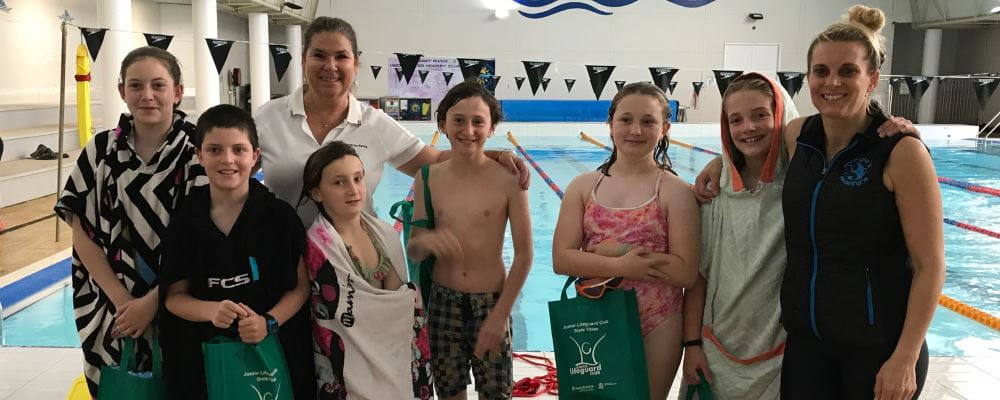
Royal Life Saving WA works in conjunction with 15 swimming pools and aquatic centres, as well as various community organisations throughout the South West to provide a range of programs to local communities. These programs help us to actively raise water safety awareness, educate local communities and celebrate all that is healthy swimming activity! Our programs include:
Infant Aquatics
The Royal Life Saving Infant Aquatics program encourages individual progression in developing aquatic skills suitable to the child's developmental stage. Infant Aquatics uses songs, games and activities to ensure children experience a variety of skills including entries, floating, breathing and movement.

Swim and Survive
Learning to Swim and Survive is a vital life skill that all Western Australian children need to safely participate on, in and around water. The Swim and Survive program identifies 16 critical stages in a child’s development. The lower stages focus on teaching efficient support and movement in the water. The higher stages include skill and knowledge in safety, survival and rescue, all while developing a strong and effective swimming technique.

Bronze Rescue
The Bronze Rescue awards strand teaches an understanding of the lifesaving principles embodied in the four components of aquatic rescue education: judgement, knowledge, skills and fitness.
The central component of the Bronze Rescue program is the Bronze Medallion which has been operating for over 100 years with many Australians undertaking the program since commencement. The Bronze Medallion is considered the pinnacle of the awards in the community.
Lifesaving skills learnt and developed through the program are highly regarded in the community and may even lead to or enhance the chances of starting a career.

Junior Lifeguard Club
The Junior Lifeguard Club provides opportunities for children to keep interested and active in aquatics, especially quick learners and those caught between levels and programs. It's a fantastic opportunity to further develop swimming skills at the same time as developing new and challenging lifesaving skills.
This program is an alternative to traditional assessment checklist based programs, where participants learn the skills required for pool lifesaving and is based on personal best achievement.
